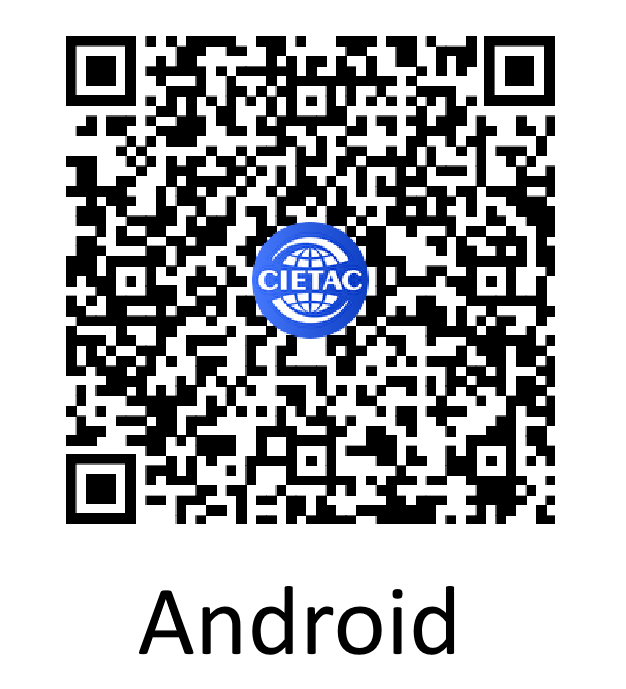

Please be reminded that the following answers are for reference only and that the final interpretation rests with the China International Economic and Trade Arbitration Commission (hereinafter referred to as “CIETAC”).
Ⅰ.Can we resolve the dispute through the China International Economic and Trade Arbitration Commission (CIETAC)?
To resolve a dispute through arbitration with CIETAC, there should be a valid arbitration clause included in the contract signed between you and the other party (or a separate arbitration agreement), clearly specifying that any disputes arising from or in connection with the contract shall be submitted to arbitration by CIETAC or its relevant sub-commission/arbitration centre..
For a model arbitration clause, please refer to: https://www.cietac.org/articles/25013
Ⅱ.How to file a case with CIETAC or a CIETAC Sub-Commission/Arbitration Center?
Article 2.6 of the CIETAC Arbitration Rules stipulates that where the parties have agreed to arbitration by CIETAC, the Arbitration Court shall accept the arbitration application and administer the case. Where the parties have agreed to arbitration by a CIETAC sub-commission/arbitration center, or have agreed to arbitrate or conduct the oral hearing in the province, autonomous region, or centrally-administered municipality where a CIETAC sub-commission/arbitration center is located, the arbitration court of that sub-commission/arbitration center shall accept the arbitration application and administer the case unless otherwise agreed by the parties. The Arbitration Court may authorize and designate a sub-commission/arbitration center to administer relevant cases having regard to the circumstances of such cases.
Therefore, the parties may file the application for arbitration directly with CIETAC or the relevant Sub-Commission/arbitration center in accordance with the provisions of their arbitration agreement.
The Commission: https://www.cietac.org/en/articles/25103
Sub-Commission/Arbitration Center: https://www.cietac.org/en/sub-commission
Ⅲ.What types of disputes can be submitted to arbitration?
Disputes of a contractual or non-contractual nature arising from international, foreign-related (including those involving Hong Kong, Macau, and Taiwan), or domestic economic and trade activities may be submitted to CIETAC for arbitration. However, CIETAC does not accept the following types of disputes:
1. Disputes concerning marriage, adoption, guardianship, maintenance, or inheritance;
2. Administrative disputes that are required by law to be handled by administrative authorities;
3. Labor disputes and disputes arising from agricultural contract agreements within rural collective economic organizations.
Ⅳ. Can arbitration be requested if one party is a government agency?
Yes. If the dispute between the parties concerns economic and trade matters rather than administrative issues, arbitration may be initiated even if one party is a government agency.
Ⅴ. What documents are required to apply for arbitration?
Please refer to How to Start Arbitration at CIETAC for detailed guidance.
To initiate arbitration, the Claimant shall submit an application in accordance with the instructions. Upon review by the case manager, the Claimant must complete the required documentation for filing and prepay the arbitration fee,Once these requirements are fulfilled, the case will be formally accepted and proceed to the next stage of the arbitrationprocess.
Ⅵ. Do the documents need to be notarized or authenticated?
At the stage of case filing, documents such as corporate documents, powers of attorney, and evidentiary materials originating from outside mainland China are not required to be notarized or authenticated in order to submit an application for arbitration. However, if the arbitral tribunal deems it necessary to have documents notarized or authenticated during the arbitration proceedings, the relevant party shall complete such procedures. If the opposing party raises objections regarding the authenticity of certain documents during the proceedings, the issue shall be addressed based on the circumstances of the case or as directed by the arbitral tribunal.
Ⅶ. Do the documents need to be translated?
In principal, non-evidentiary documents such as the Application for Arbitration, List of Evidence, Power of Attorney, and Certificate of Legal Representative, etc. shall be prepared in the the language of the arbitral proceedings. At the case-filing stage, original evidentiary materials in Chinese or English do not need to be translated for the purpose of filing. However, if certain documents that must be reviewed by CIETAC during case filing-such as corporate registration documents or the arbitration agreement-are written in languages other than Chinese or English, the party shall provide a translation in Chinese or English at this stage.
Ⅷ. Must arbitration documents be submitted in person?
(1) Arbitration documents do not have to be submitted in person at the premises of CIETAC or itsSub-Commissions /Arbitration Centers. The parties may file an arbitration case using the following methods:
a. By mail.
CIETAC headquarters: https://www.cietac.org/en/articles/25103
Sub-Commissions/Arbitration Centers: https://www.cietac.org/en/sub-commission
b. Online via the CIETAC Smart Arbitration Platform
Web link: http://www.cietacodr.org/#/login
Mobile App:


(2)After the case is accepted, if both parties agree to the electronic delivered of arbitration documents, they may submit such documents through the CIETAC Smart ArbtirationPlatform mentioned above.
Ⅸ. Is there a fee for applying for arbitration?
Yes. The Claimant is required to prepay the arbitration fee at the case-filing stage. The arbitration fee is calculated on a sliding scale based on the amount in dispute. For details, please refer to the fee schedule attached to the Arbitration Rules.
This fee is an advance payment, and its final allocation will be determined by the arbitral tribunal in the final award. In principle, the losing party shall bear the arbitration fee.
If the Claimant withdraws the case after the commencement of the arbitration proceedings, , a portion of the arbitration fee may be refunded at CIETAC’s discretion, depending on the specific circumstances of the case. For details, please refer to Refund of Arbitration Fee due to Case Withdrawal.
Ⅹ. Is there a deadline for the prepayment of arbitration fee?
There is no strict deadline for the Claimant to prepay the arbitration fee. In principal, the filing document will be kept in the Arbitration Court for 3 months. In practice, CIETAC will endeavor to keep the materials as long as possible. The Claimant may make the payment during this period. However, please note that CIETAC will only accept the case and commence the arbitration proceedings after the Claimant has completed the payment.
Ⅺ Can the Claimant apply for property preservation before arbitration?
According to Article 104 of the Civil Procedure Law of the People's Republic of China (hereinafter as “the Civil Procedure Law”), the Claimant may apply for property preservation prior to initiating arbitration by submitting an application to a people’s court located at: the place where the property to be preserved is located, the domicile of the Respondent, or a court with jurisdiction over the case.
If the Claimant applies for property preservationduring the arbitration proceedings, the Arbitration Court will, in principle, forward the Claimant’s application to the competent court designated by the Claimant when issuing the Notice of Arbitration to both parties. At the request of the Claimant, the Arbitration Court may transfer the application to the designated court prior to issuing the Notice of Arbitration , provided it is within a reasonable time.
Ⅻ. What documents are required to apply for property preservation, and how to identify the competent court?
As the requirements for property preservation may vary across different cities, parties are advised to determine the competent court in accordance with the relevant provisions of the Civil Procedure Law, and consult the relevant people’s court regarding the required application documents. Special Note: According to [2006] Jing Gaofa Fa No. 357, intermediate people’s courts shall have jurisdiction over applications for arbitration property preservation and award enforcement in Beijing.
XIII. Do I need to engage a lawyer to handle an arbitration case?
Parties may decide whether to appoint a lawyer to handle the arbitration case based on their own circumstances. CIETAC does not compel parties to engage a lawyer, does not recommend any specific lawyers, and does not cooperate with any law firms in handling cases. If a party appoints a lawyer or other representative to act on its behalf, a valid Power of Attorney must be submitted. For details, please refer to the Template of Power of Attorney.
XIV. Is the number of arbitration agents limited to two?
There is no limit on the number of arbitration agents. The party is only required to submit a Power of Attorney for each arbitration agent. However, please note that due to the principle of confidentiality, no one other than the parties themselves, their legal representatives and authorized agents may participate in the arbitral proceedings, including attending hearings, unless approved by the tribunal and with the consent of the other party.
XV. Can an arbitral award be enforced abroad?
An arbitral award rendered by CIETAC may be recognized and enforced in more than 170 countries and regions worldwide, in accordance with the United Nations Convention on the Recognition and Enforcement of Foreign Arbitral Awards (the New York Convention ,1958). It may also be recognized and enforced in the Hong Kong and Macau Special Administrative Region of China under the relevant arrangements.
XVI. What formalities shall be followed to enforce an arbitral award abroad?
To enforce a CIETAC arbitral award abroad, the Claimant shall generally apply to the court in the jurisdiction where the Respondent or the Respondent’s assets are located and follow the relevant procedures in accordance with the local laws. If the country of enforcement is a member state of the New York Convention, it is also required to submit documents required under the Convention. It is advisable for the parties to consult the competent court and consider engaging a local lawyer for assistance.




